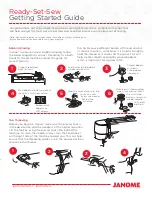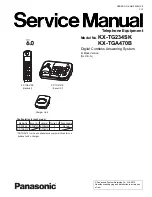
5
HOW TO USE THIS MANUAL
Chapters 1 and 2 describe to the first-time user the initial operations for using this machine and the basic
sewing operations.
To sew utility stitches
Continue with chapter 3 to learn how to select a stitch and sew using the various stitches.
To sew characters and patterns
Continue with chapter 4 to learn basic operations, from selecting patterns to sewing, in addition to
operations such as combining and editing patterns to rotate or resize them, and storing combined
patterns.
• Parts related to operations described in the procedures are highlighted in gold.
Perform the operations while comparing the screens in the procedures with those that appear on the
machine.
• If, while using the machine, you have questions about an operation or you would like to know more
about a specific function, refer to the index (Page 147) and the table of contents to find the section of
the manual to refer to.
Chapter 1
Chapter 2
Chapter 3
Chapter 1
Chapter 2
Chapter 4
Summary of Contents for Symphony BLSY
Page 1: ......
Page 2: ......
Page 10: ...8 ...
Page 50: ...USEFUL FUNCTIONS 48 ...
Page 102: ...SEWING THE STITCHES 100 ...
Page 120: ...COMBINING STITCH PATTERNS 118 Examples of Pattern Combinations ...
Page 151: ......
Page 152: ...English 882 U65 XE8666 001 Printed in Taiwan ...








































